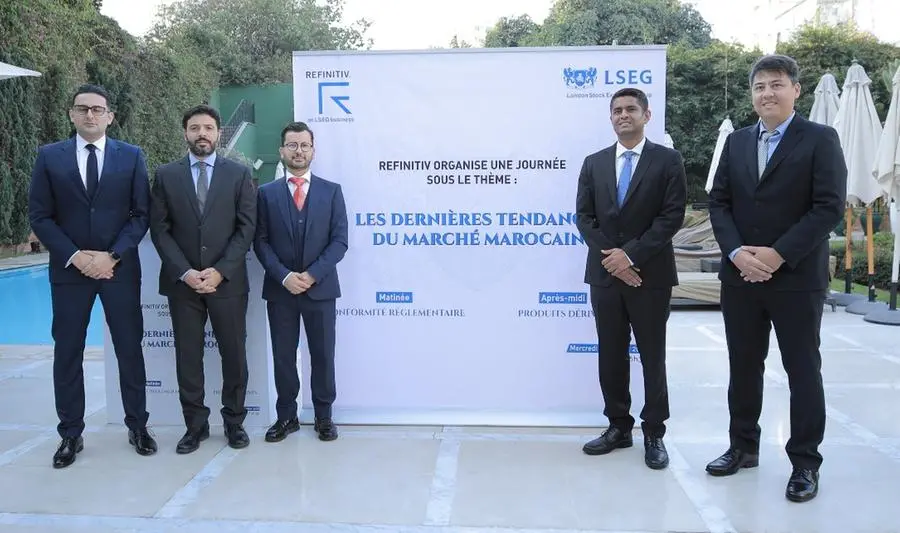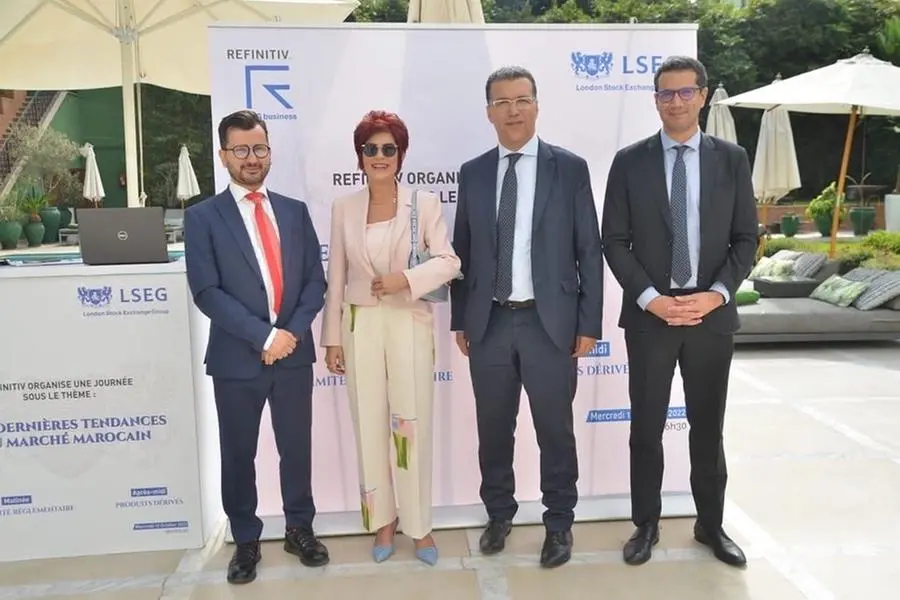PHOTO
Morocco is strengthening measures to tackle money laundering and terrorist financing to get off the Financial Action Task Force (FATF) grey list.
In February 2021, Morocco was added to the FATF list of countries “subject to increased monitoring”, but since then the kingdom has made a high-level political commitment to work with the FATF and the Middle East and North Africa Financial Action Task Force (MENAFATF) to strengthen the effectiveness of its anti-money laundering efforts and to counter the financing of terrorism.
Speaking at a seminar organized in Morocco by Refinitiv, an LSEG (London Stock Exchange Group) business, Majid Zouheir, head of the Supervision Department at the Foreign Exchange Office, said: “The FATF assessors appreciated the efforts of the Foreign Exchange Office, especially as suspicious transaction reports from stockbrokers have increased.”
The seminar, held on October 12 in Casablanca, focused on the latest regulatory updates and financial crime trends, with a focus on Moroccan measures taken at the legislative, institutional, operational and national levels to counter money laundering, terrorist financing, and proliferation of financing systems.
Vikas Jain, Director, Account Management (MEA) at Refinitiv, said: "Refinitiv believes in growing and enabling the markets and communities we operate in. We intend to be local, to be close to our customers and Morocco is an important market for us. By organising events like this one, we provide a platform for regulators to share their guidance with financial institutions and corporates. It is also an opportunity for obliged entities to share their challenges back to the regulators and policy makers.”
"As a global market leader in compliance and AML space, we look forward to helping the Moroccan market with industry best practices and best in class systems to mitigate the compliance risks and achieve global standards," he added.
Redoubling efforts on raising awareness
The various regulators, including the Foreign Exchange Office, Bank Al-Maghrib, the AMMC and the ACAPS, have redoubled their efforts to collaborate with the National Financial Intelligence Authority (ANRF), which has seen the volume of suspicious transaction reports increase significantly since its creation.


“We have worked a lot on raising awareness in exchange offices to bring [foreign exchange operators] up to speed. The framework there is not always structured, and companies had to be helped to implement control procedures with internal control procedure guides, etc,” Zouheir said.
“We are talking about a population of nearly 800 foreign exchange operators in Morocco. At the same time, we had to check the implementation of these procedures,” he added.
In 2021, the FATF stated that Morocco needed to continue its work to implement its action plan to remedy its strategic shortcomings on several levels. The FATF also called for measures to ensure that beneficial ownership information, including information regarding foreign legal persons and arrangements, is appropriate, accurate and has been verified.
“On this aspect, Bank Al-Maghrib started work in the early 2000s, then in 2019 with a directive dedicated to the identification of people,” said Youssef Ghchioua, Supervisor at Al-Maghrib bank.
In his opening speech, Nabil Badr, Deputy Director General of Banking Supervision at Bank Al-Maghrib, explained that the regulation of crypto-assets and digital transformation are not in opposition to the recommendations of the FATF as long as the regulations are firm.
“Digitalisation must be compliant with FATF recommendations,” he said, stressing that Bank Al-Maghrib continues to work with all regulators, with the technical assistance of the World Bank, on a framework for crypto-assets to regulate their use.
(Writing by Hadhami Khraief; editing by Seban Scaria seban.scaria@lseg.com)





















